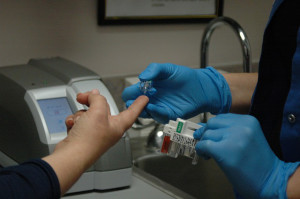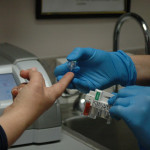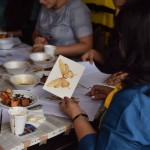Health Matters: Leading a quality life with Diabetes
I have noticed during my practice that when a person is diagnosed with diabetes, the patient’s first response is to go into denial. How can I get diabetes, I don’t eat too many sweets! I don’t even have family history! are just some of the responses I get. And then they quickly google the illness and its symptoms to cross check whether their blood reports are correct. They also find it difficult to take their prescription medicines or stick to the correct diet to control the illness. I would like to tell diabetes patients to relax and know that if you make changes to your lifestyle, take care of your diet and have your medicines regularly, diabetes can be managed very well. I will start by explaining about the disease.
Learning objective
Diabetes mellitus is the most common metabolic disorder in the world and in most countries the number of individuals with diabetes is increasing. India till recently was considered the Diabetic Capital of the World having 66.8 million diabetics (2014). But more worrying is the fact that the epidemic has been spreading since the first national survey was undertaken in 1971. At that time the prevalence rate was 2.3% in urban areas and 1.2% in rural areas. The most recent studies indicate the prevalence rate of between 15 to 20% in urban areas. And the epidemic is fast spreading to rural areas as well.
What is the reason for this explosive increase? Agreed, a high level of genetic predisposition plays a role, but it is unlikely that the genetic make-up has changed so much in the last 30-40 years to account for the alarming increase. It is more likely that change in lifestyle because of prosperity and urbanisation is responsible. If that is the case, a lot can be done to prevent, control and effectively manage diabetes by understanding the disease.
Awareness needed
For that we need to be educated about diabetes because recent surveys have shown that awareness about diabetes is very poor in our country. As is evident from the following data:
- Diabetes is a preventable disease.
- What are their risk factors? Manageable and otherwise.
- Who needs to be screened?
- Diabetes is a major risk factor for heart attack, stroke, kidney failure, preventable blindness and non-traumatic amputation.
- Even today more than 50% of individuals with diabetes remain unaware that they have this condition.
- More than 40% of educated professionals do not know that it can be prevented.
- More than 80% are unaware that it can affect many organs of the body.
India, with such a poor state of awareness about diabetes has an extra pie of worries.
- It occurs a decade earlier than west.
- Occurs even in non-obese individuals.
- The co-existence of hypertension and high cholesterol is high.
- Indians are more prone to develop heart disease and less prone to develop kidney and eye complication.
The important part is that more the awareness the larger the scope of prevention and effective management. Poor control leads to poor quality of life and poor productivity.
Source: International Diabetes Federation Atlas, Sixth edition, 2014 Update
(Dr Ajay Agarwal is a consultant family physician, with several papers and books on health issues to his credit. He is also the recipient of Lt. Governor of Delhi’s ‘Distinguished Service Award’).
Health Matters is Dr Ajay Agarwal’s attempt to demystify diabetes and make it manageable. Send in all your queries to seemakumar@90caps.com. Dr Agarwal will answer them in next week’s post.



















